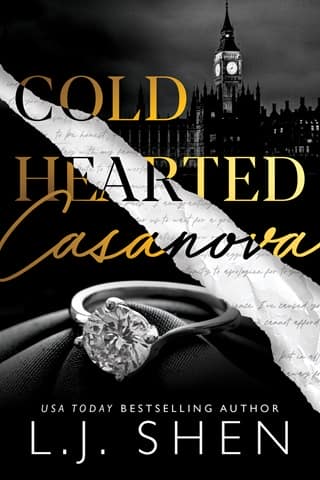Epilogue Majestic Improvisation
A ll art,” Hoid said, “is secretly improvisation.”
The other people in the waiting room glanced at him, giving him dark looks. He sat primly in his coachman’s uniform, hat under his arm. He’d dusted off his old beggar’s costume—well, it was supposed to be dirty, so he’d more dusted onto it—for an appearance here and there. However, he wanted to be gainfully occupied. And stay close to some important, relevant people who tended to look poorly on someone who could fill a garden with good topsoil merely by shivering.
“Art,” Hoid said. “It’s truly improvisation. You realize that, don’t you?”
The others ignored him. How rude.
“You see,” he said, leaning toward a woman waiting to apply for a buttling position, by the advertisement in her fingers. “You can practice, and practice, and practice. But then the moment comes, and …” He made a gesture with his fingers toward the ceiling, drawing her eyes that way. “And then the lights turn on, and the practice is but a guide.
“An outline? Well, you start with a blank page either way. And the parts where you’re forced, by narrative beauty, to toss the outline away? Improvisation. Art is improvisation. It’s the brushstrokes you don’t intend, but your instincts know you need anyway. The parts of the story you add for a specific reader, the expression you make onstage to provoke a gasp. That’s the art.”
The woman scooted a little distance away from him.
“I was wrong with my plans,” he said, staring toward the sky. The ceiling was in the way, but that didn’t matter. He could imagine it. That was basically the entirety of his job. “I was so meticulous, so deliberate; I tried to be so clever. And then poof, it was all destroyed. By a grand act of majestic improvisation.”
He could see now what Dalinar Kholin had done. It had taken Hoid weeks to grasp what that wonderful, belligerent, spectacular man had done. Everyone, Hoid at their forefront, had been ready to walk away again. Their problem safely delayed once more.
In one grand stroke, Dalinar had stolen that from them. He’d released the lion from its cage, or the whitespine from its den, or the dragon from her palace. And he’d given them a huge boost to propel them into being a cataclysmic threat, if unchecked. He’d demanded that action be taken, and Retribution had been forced to turn from Roshar to deal with greater foes.
At first, Hoid had worried this would destroy Roshar. But no, of course it wouldn’t, because Retribution would not let himself get caught and killed so easily. He’d gone into hiding immediately, but it was very hard for a Shard to hide—so long as it wanted to influence things, the vibrations would be felt.
Now, a dance. A game on a grand scale, building to war. One none of them had wanted, because they’d been willing to quietly pretend that it would never happen, and that the murderer who had killed at least three of their number wasn’t their problem.
What a glorious play Dalinar had made.
Roshar would have troubles, yes, and they would be difficult to survive. But better for the axe to fall now, when it might only take a limb. And during that time, just maybe, Retribution would assume the place secured and loyal.
Which gave Roshar a chance.
“Hoid?” the Ladrian house steward called from the front of the small waiting room.
How did he see? Hoid thought, standing up. How did Dalinar find the way out? This hadn’t been one of the many more obvious possibilities. It had been a small, insignificant one—as likely as flipping a coin onto the same side a thousand times in a row. None of them had seen it, because when possibilities were infinite, you could get a tad overwhelmed.
It bothered him that few would know what Dalinar had achieved and sacrificed. But fortunately, at least one person did know, and he wasn’t exactly a quiet type. Dalinar Kholin’s true story would be told. Once the time was right, and Hoid could get back to Roshar.
The Ladrian house steward was a plump, middle-aged woman. She had a prim jacket and spectacles, and a bright yellow pocket square. The type of bold coloring in an otherwise drab outfit that said, “I consider myself a fun-loving type—but I decided to study accounting, and I now know seventeen different ways to fill out a ledger.”
From her seat behind the desk, the woman looked him up and down, spectacles on the end of her nose. Then she studied the application in front of her.
“I believe,” Miss Grimes said, “you’re interested in the coachman job?”
“I am?” Hoid said. “I suppose that explains this coachman’s jacket, this coachman’s hat, and the application for a coachman’s job filled out by me that you are, indeed, holding at this very moment.”
“Ah,” the woman said. “A funny type.”
“Only when the situation does not call for it, ma’am.”
She grunted, turning the page. “You realize the pay is terrible.”
“It always is.”
“You don’t have any references.”
“Previous employer is a tad indisposed,” he said, “living on another planet, which is undergoing a brief, but dramatic, world-ending cataclysm.” He leaned forward. “Also, she broke up with me recently, and I don’t think I’d get much of a referral.”
The woman took that in stride, which improved Hoid’s opinion of her. “Well, I can’t be too picky,” the steward said, stamping his application. “Seeing as ever since a previous fellow literally ended up driving off a cliff, we’ve had trouble keeping the position filled. You passed the driving test, and Jone says you’re good with the horses and know your way around the city, even if you are a little odd. Report in tomorrow. Six sharp.”
“Thank you, ma’am,” Hoid said, then leaned down farther across the table. “I didn’t know what to do. Thing is, that’s wonderful. That’s the point. Because when the predetermined answers flee, then the solution comes down to who you are. That’s when we see the mettle of a person. That is art: when untested skill meets unplanned catastrophe.”
The woman looked up at him, then blinked. “I think I understand.”
“Wait. Really. You do?”
“Of course I do,” the woman said. “You’re here for this job because absolutely nobody else will hire you. Good thing you can get a person where they’re going.”
“Ma’am,” Hoid said, putting on his hat, “you have no idea.”
He turned and walked from the room into the sunlight, already improvising. First, to help guide this crisis on Scadrial. After that …
Well, hate it though he did, there was only one reasonable choice. With Retribution formed, Hoid needed allies—even allies who hated him—who knew how to fight gods.
He would have to go find Valor. After all that time he’d spent trying to manipulate Dalinar, the old Blackthorn had gone and manipulated Hoid—and every single Shard.
“Brilliant job, my friend,” he said, striding out onto the street. “Brilliant storming job. You’ve given us a chance. Let’s hope we can live up to it.”
 Fullepub
Fullepub 



